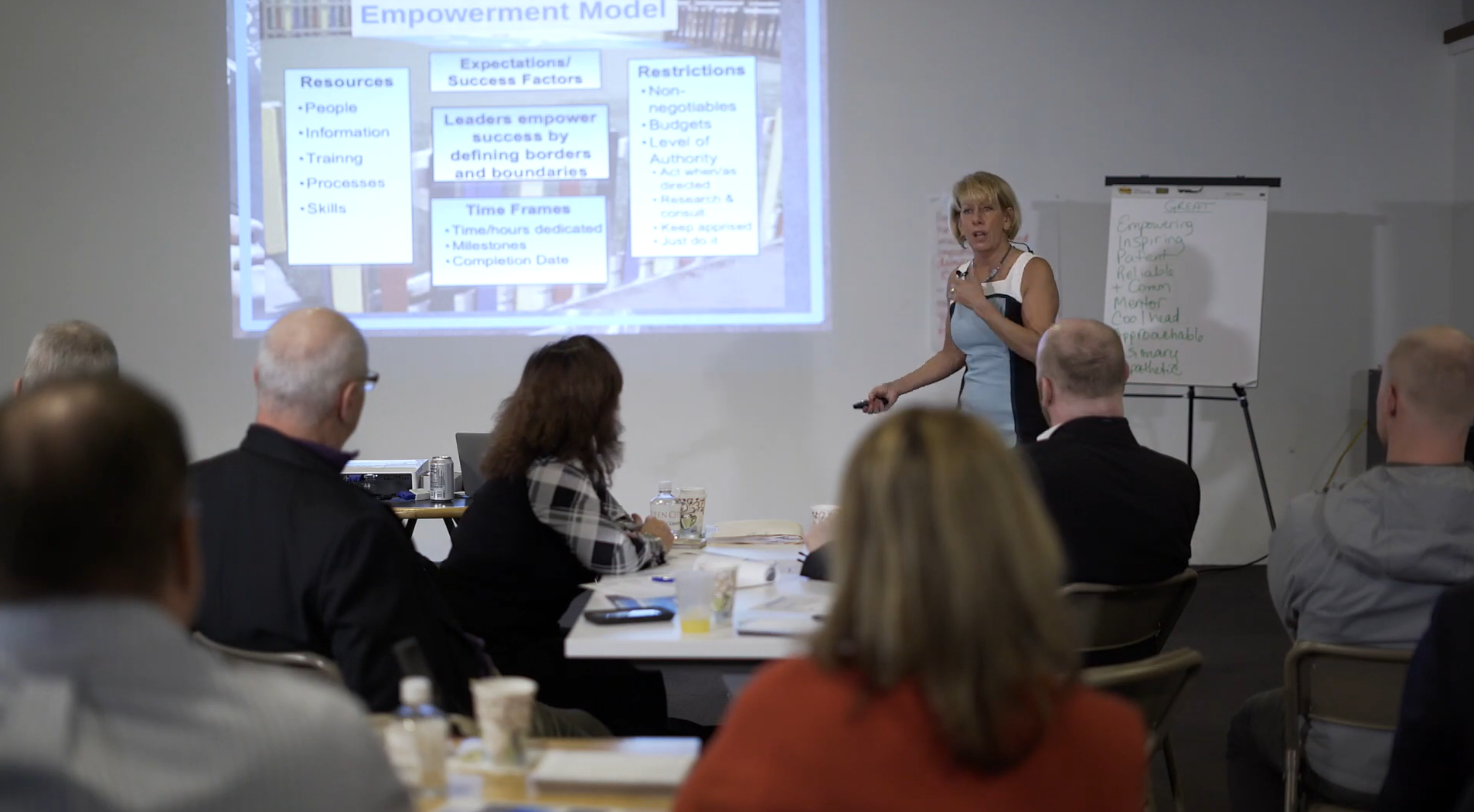
Delegation is hailed as a cornerstone of effective leadership—but for many leaders, it remains a persistent challenge. Despite widespread agreement on its importance, delegation is often misunderstood and misapplied. Leaders either avoid it altogether or assign tasks without sufficient clarity, leading to micromanagement, missed expectations, and team underdevelopment. The result? Burnout at the top and stagnation below.
At The Metiss Group, we work with leaders across industries who want to elevate performance without sacrificing trust or accountability. We’ve seen firsthand that the real obstacle to effective delegation isn’t a lack of willingness—it’s a lack of structure. Drawing from behavioral science, leadership development principles, and proven fieldwork with Integrators and executive teams, we’ve developed and implemented the Empowerment Model: a delegation framework built around clarity, autonomy, and measurable outcomes.
In this article, we’ll show you a better way to delegate, one that builds your team’s capacity, increases execution speed, and enhances your leadership credibility. You’ll learn how to use the Empowerment Model to define expectations, boundaries, and resources so your team members can step up with confidence. Delegation will no longer be a vague handoff, it will be a strategic tool to grow both results and leadership depth.
In this article, you will learn:
- Why Delegation Fails Without a Clear Structure
- The Empowerment Model: A Proven Framework for Effective Delegation
- Key Insights of the Empowerment Model for Managers and Teams
- How the Empowerment Model Builds Stronger Leadership Skills
- Integrating the Empowerment Model into Leadership Training Programs

Why Delegation Fails Without a Clear Structure
Traditional delegation is often misunderstood. Leaders treat it as a task assignment: a discrete responsibility handed off to someone else. However, effective delegation involves more than naming a person and a due date. Without clearly defined expectations, success metrics, and constraints, the leader retains hidden responsibility for the outcome. This undermines the intent of delegation and creates frustration on both sides.
Many underperforming managers carry too much operational responsibility because they have not developed their team's capacity to own results. They do not provide clarity, which leads to hesitation, missteps, or incomplete work. Over time, this fosters a culture of dependency, disengagement, and micromanagement.

The Empowerment Model: A Proven Framework for Effective Delegation
The Empowerment Model provides a structured solution. It offers leaders a systematic way to define the task, clarify the expectations, and transfer ownership. At its core, the model relies on one essential leadership principle: people perform best when they understand the boundaries within which they can operate.
In a behavioral study by Northumbria & Newcastle Universities, this concept is well illustrated with children on a playground. When the schoolyard lacked a fence, children stayed close to the building. Once a fence was added, the children used the entire space. The fence gave them a sense of safety and freedom. In leadership, clearly defined expectations function in the same way. They establish a perimeter that encourages full engagement and initiative.
Key Insights of the Empowerment Model for Managers and Teams
The Empowerment Model defines delegation in terms of borders and boundaries. These include:
- Expectations and success factors: What does good look like? How will results be measured?
- Resources: What tools, people, or information are available to support the work?
- Time frames: What deadlines, milestones, or available hours apply?
- Restrictions and non-negotiables: What budget limits, policies, or authority boundaries must be observed?
By defining these parameters, the leader enables the direct report to fully engage with the task, make decisions within agreed-upon limits, and deliver outcomes without constant oversight. The leader retains strategic oversight, while the team member gains operational autonomy.
How the Empowerment Model Builds Stronger Leadership Skills
When properly used, the Empowerment Model does more than improve execution. It actively develops leadership skills in direct reports. Individuals learn to think critically, manage constraints, and take ownership of results. Over time, this builds confidence and increases the team's capacity to handle more complex responsibilities.
This model also strengthens the leader's credibility. It demonstrates trust, sets clear expectations, and provides a reliable framework for accountability. Instead of reactive corrections after the fact, the leader proactively defines success and enables it. This shift builds both performance and morale.

Integrating the Empowerment Model into Leadership Training Programs
Leadership training programs that prioritize strategic leadership and long-term team development should include structured delegation models like this one. Executive leadership coaching and leadership development classes often emphasize emotional intelligence in the workplace, but the practical execution of delegation requires more than interpersonal awareness. It requires clarity, process, and discipline.
The Empowerment Model is particularly valuable for EOS Integrators and other roles where cross-functional coordination and accountability are essential. It gives leaders a scalable tool to drive outcomes while elevating the capabilities of their teams.
Takeaways
In the past, delegation was often seen as a simple transfer of tasks, something leaders were expected to do naturally. Without clear guidance, it frequently led to confusion, rework, and missed opportunities for development.
The Metiss Group equips leaders with tools like the Empowerment Model to reframe delegation as a strategic leadership skill. By helping organizations define roles, set boundaries, and foster accountability, we ensure that delegation becomes a lever for performance, not just a logistical handoff.
Looking ahead, companies that adopt this intentional approach to delegation will build stronger, more autonomous teams. With The Metiss Group's guidance, leaders can transform how they develop talent, enabling execution that’s aligned, empowered, and primed for long-term growth.
Unlock your leadership potential — Discover the proven strategies behind high-performing teams with Leadership Essentials Playbook.
























